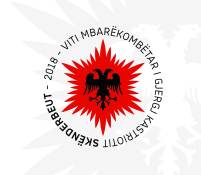New ALLEA Statement Highlights Intellectual Property Challenges for Developing Crops Using NGTs in the EU and Recommends Possible Solutions
Despite the potential for New Genomic Techniques (NGTs) to contribute to the EU’s Green Deal objectives, the patentability of these technologies and their products raises several concerns among breeders, farmers, and academics, including concerns about unintentional patent infringement, monopolisation of technologies and plant varieties, and licensing complexities. Following extensive stakeholder consultation, this ALLEA Statement provides a range of short-, medium-, and long-term recommendations for measures that could help to overcome these obstacles.
Berlin, 8 February. ALLEA, the European Federation of Academies of Sciences and Humanities, has released a statement on concerns surrounding the impact of the current intellectual property (IP) system on the adoption and development of New Genomic Techniques (NGTs) for crop breeding in the EU.
The statement entitled, ‘Measures to Ease the Impact of the IP System on New Genomic Techniques for Crop Development’, examines how the current IP system affects the operations of European breeders and farmers, especially small ones. It provides a range of short-, medium-, and long-term recommendations to overcome possible obstacles posed by the current IP system.
Due to their potential to contribute to sustainable crop development, environmental safety, and food security, the enhanced precision and speed offered by NGTs, such as genome editing through the use of CRISPR-Cas, are considered to offer promising advancements in crop breeding (see ALLEA’s work on NGTs for more information). However, the current IP landscape, which is governed through the European Union (EU) Biotechnology Directive 98/44/EC and the special Plant Breeders’ Rights, presents various challenges for breeders and farmers, including concerns about unintentional patent infringement, monopolisation of these technologies and the resulting plant varieties, and licensing complexities.
This statement highlights the increasing complexity of the patent landscape for NGT plants and products, which would arise primarily due to the increased speed in which new varieties can be produced, as well as the fact that plant varieties developed with NGTs may not be easily distinguishable from those generated by traditional breeding techniques. It also draws attention to the uncertainty arising from legal disputes surrounding patents on CRISPR-Cas9 technology. In addition, the lack of transparency and clarity in licensing agreements pose substantial obstacles to innovation and equitable access to these technologies.
In response to some of the challenges resulting from the current IP system, measures proposed in this statement provide a toolbox for multi-faceted solutions.
“The proposed short- and medium-term measures could be implemented relatively quickly and should help to alleviate some of the challenges for breeders and farmers by increasing transparency and access to these technologies. At the same time, however, it may be necessary to explore a more fundamental redesign of our IP system for food plants and related technologies in order to provide a more structural and future-proof solution.”
– Heinz Müller, Task Force Chair
This comprehensive statement on IP for New Genomic Techniques underscores the urgency of a nuanced approach. To arrive at these recommendations, a dedicated task force, consisting of leading experts on the topic, consulted with stakeholders representing a variety of perspectives, including patent holders, small breeders, academic researchers, and NGOs.
“With the increasing pressures on our food systems arising from climate change and geopolitical developments, collaboration among diverse stakeholders is paramount to securing the availability of sufficient and high-quality food. The proposed measures aim at supporting future European food systems that are more sustainable and serve the needs of our society.”
– Antonio Loprieno, ALLEA President
On Wednesday, 6 March, 14:00 (CET) a webinar will take place to discuss the outcomes of this statement, and further explore the implications of its recommendations as well as their potential impact in this field.
Lexoni Deklaratën.

